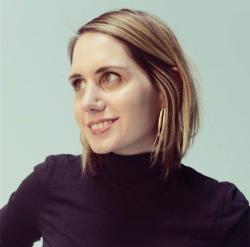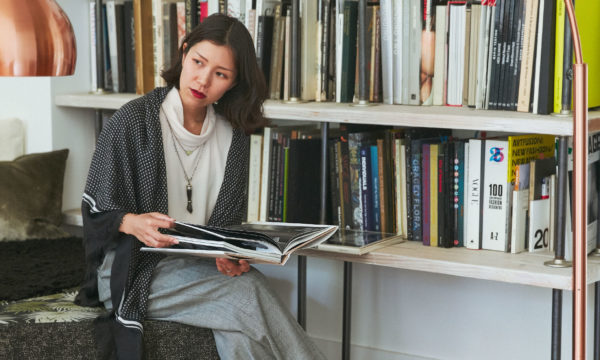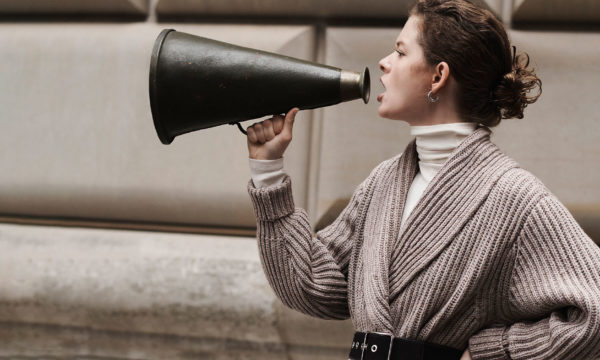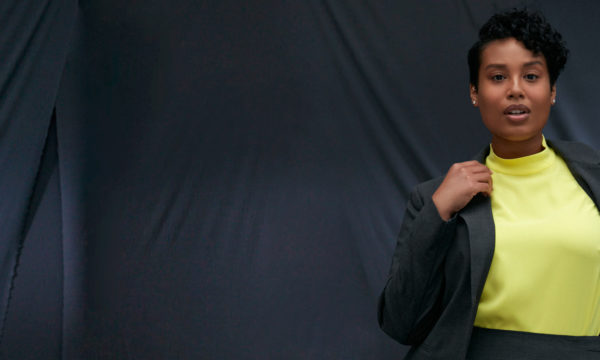
Shop This Look
You Have Our Permission to Have More Fun in Your 30s
You aren’t behind your peers. Delaying or de-emphasizing the importance of traditional milestones gives us more time to figure out what we really want.
Last week, I went on vacation for the first time since December 2019 (rest assured, I’m fully vaccinated!). And on my trip, I wore a crop top not once, but twice (it was actually the Alina, knotted in the back). This isn’t front page news—“Woman Wears Crop Top in Florida—Read all about it!!”—but it is noteworthy in the broader context of my life. In the relatively short time since my last vacation in 2019, I had a baby and then watched that baby learn to roll over, crawl, walk, and now basically run. I left New York City, my home of almost 15 years, and moved to a different, smaller city. I bore the weight of maintaining some semblance of normalcy for my family during a global pandemic. I survived the blinding stress of the 2020 election. I worked full-time. I sustained, and somehow strengthened, most of my closest relationships via phone or text. I turned 36, and then 37. I lived what felt like 10 years condensed into roughly 450 days, and by all accounts, I should feel older…but I don’t. The crop top is proof of that.
Want more M Dash?
Sign up for our weekly newsletter.
Thank you!
A week after my trip, I found myself thinking about my traditionally youthful sartorial choice not only in the context of the last year or so, but also because I had just finished reading April’s M.M. Book Club pick, Kayleen Schaefer’s But You’re Still So Young: How Thirtysomethings are Redefining Adulthood. I kept coming back to the idea that we’re supposed to “grow up” and feel different in our 30s, but at this point in my life, I don’t really know what “growing up” means.
In But You’re Still So Young, Kayleen profiles various people who are not exactly where they thought, hoped, or were told they should be in their 30s, including herself. “As I got closer to forty, I started looking at my life, and all of what I hadn’t accomplished in my thirties, and I got scared,” she writes. “I worried I was alone.” She goes on to say that she did what most of us do when we’re feeling uneasy about our own lives—she looked around and compared herself to others. “Everyone else had gotten off the bus, while I was still sitting in the back, daydreaming as I looked out the window.”

I can certainly identify with that feeling of waiting for life to happen to me while it seems like everyone else is charging forward. I think most women can, probably because we’re told we should. “In the 1950s, sociologists identified five milestones that, once checked off, signified that someone had entered adulthood,” Kayleen explained during our M.M. Book Club event on April 15th. “The milestones are completing school, leaving home, marrying, and becoming financially independent. In the ’50s, the majority of people had done those things by the time they turned 30.”
But in 2021, adulthood through this old-school lens doesn’t make sense, and that’s part of why it causes us so much anxiety. From how we date to how we build our careers, the fundamental framework around adulthood has transformed so dramatically in the last 70 years that it’s nearly impossible to make a comparison between life in the 1950s and the lives we live now, and certainly the “unprecedented” life we all endured over the last year. Right now, we deserve to give ourselves, and each other, a little more wiggle room—like another ten years or so?
“We should be careful not to be deceived into thinking that achieving [certain] milestones will transform us into an almost century-old definition of a fully-actualized adult.”
In a recent poll M.M. conducted on Instagram, 64% of respondents said they didn’t actually feel like an adult until they were in their 40s. This is much more conducive to our current paradigm—everything from marriage to financial security, and certainly motherhood, is happening much later in life. And as women, delaying or de-emphasising the importance of traditional milestones gives us more time to explore, experiment, make mistakes, and truly figure out what we want.
What Kayleen noted in our discussion is that even though there’s still an emphasis on traditional milestones that happen in a very specific order, we actually have more choices than we think we do. That said, it’s up to us to recognize and embrace those choices and pursue them. “We don’t have to stay in our hometowns, we don’t have to have a safe career, we don’t have to have the same career forever,” she said. “We can do one job for a little while and change careers. We don’t have to have children, we don’t have to get married. And I think that’s great; the fact that we have choices really opens up a lot of things.” I couldn’t agree more.

To be sure, with all the options in front of us, we may still want the more traditional milestones, and there’s nothing wrong with that. But we should be careful not to be deceived into thinking that achieving these milestones will transform us into an almost century-old definition of a fully-actualized adult. “We keep looking to arrive somewhere,” said Kayleen. “We just want to be somewhere and exhale and be like, ‘Oh, I made it. I figured out my 30s, and I’m good now.’ But [we’re] not done. There are so many things [we] still have to figure out.”
The Instagram poll revealed something else worth noting. When asked if they had any regrets about their 30s, many women responded by saying that they wished they had more fun, were less anxious, and cared a little less about growing up. For me, that’s what the crop top was about. Wearing it felt freeing because, despite having checked off so many of the arbitrary boxes of adulthood, I’m still not there yet, and I don’t know if I want to be. What I do know is, that day, in the 80-degree Fort Lauderdale sun, I was just a thirty-something woman in a half-shirt drinking a margarita, and I felt really great.








